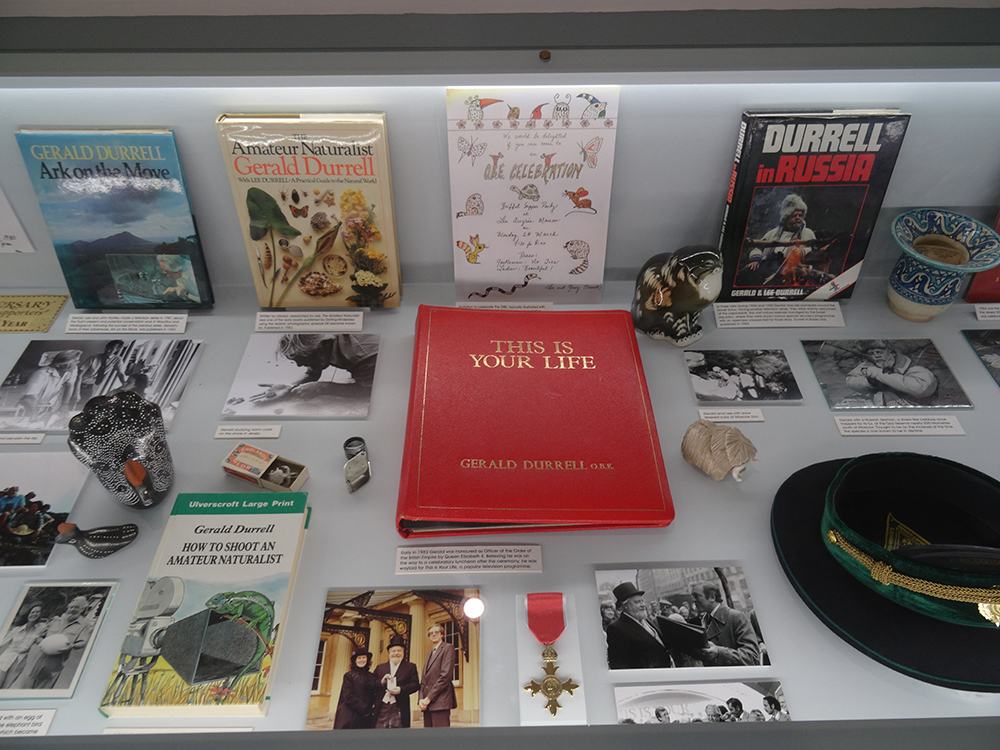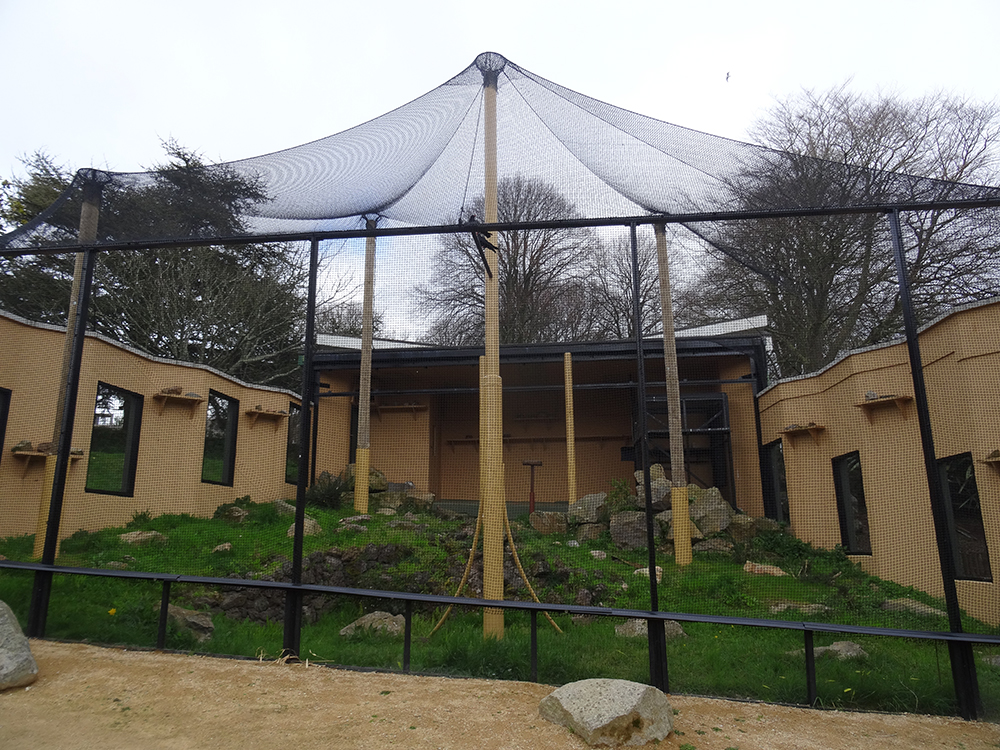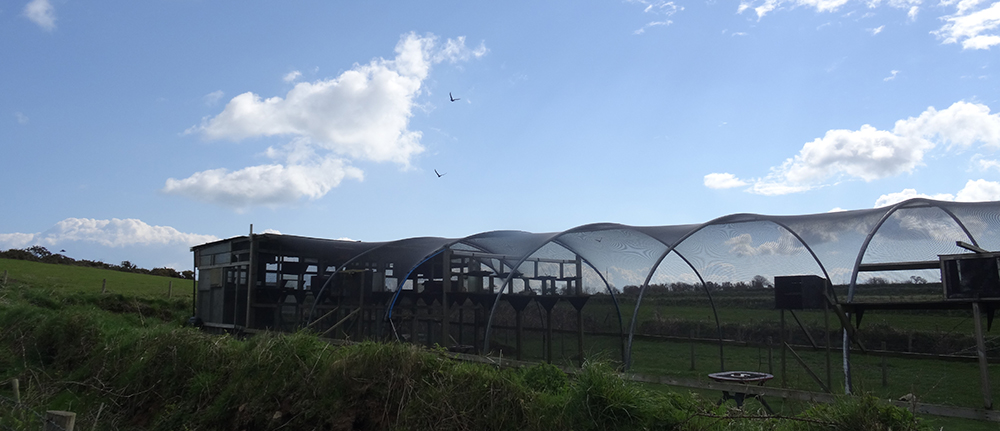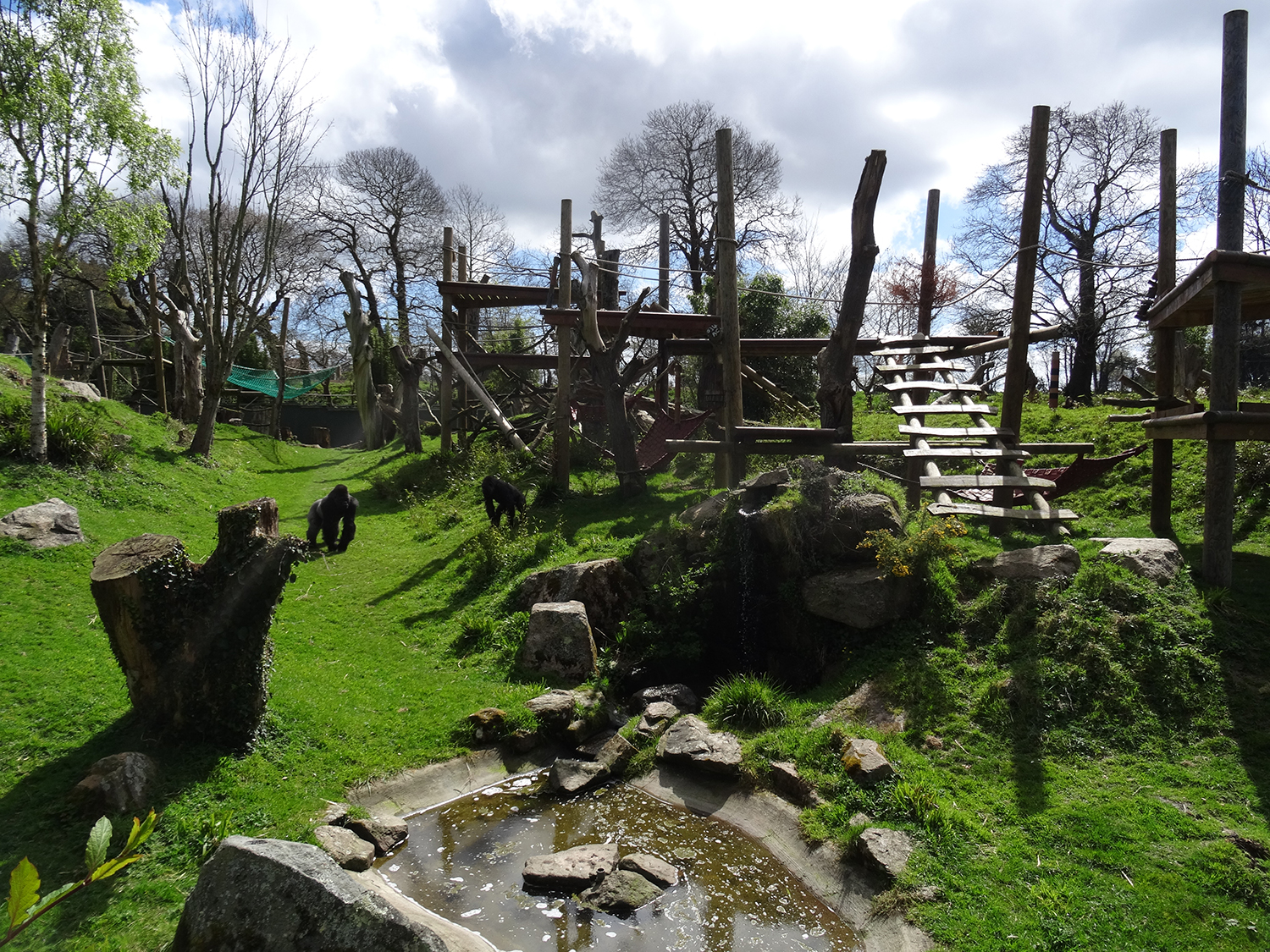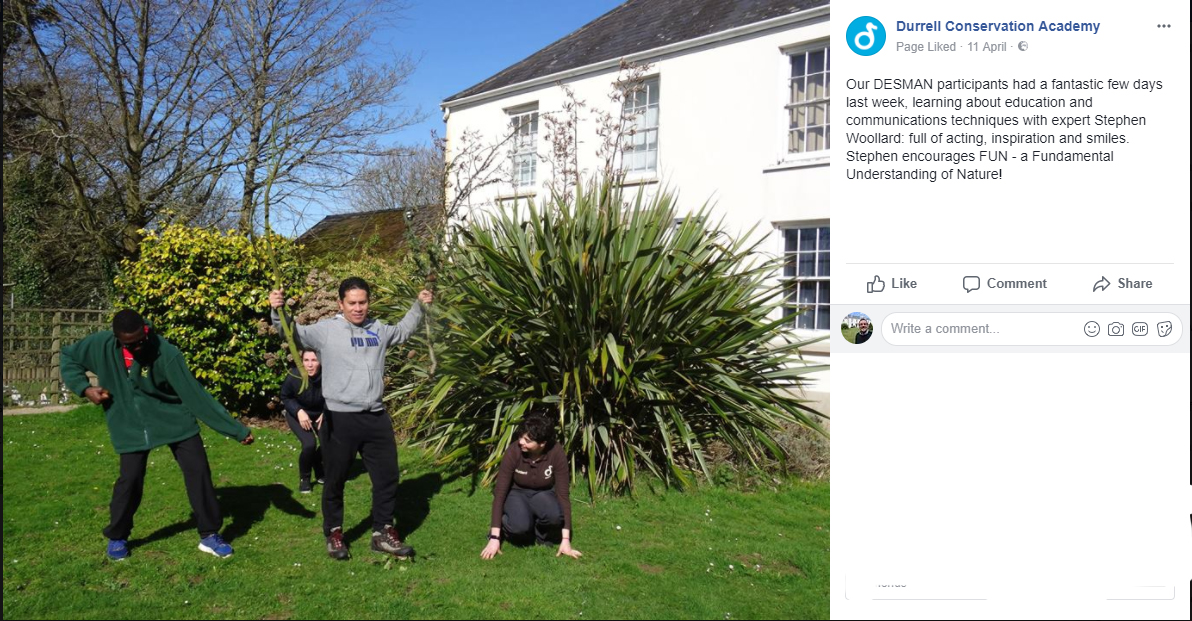 There is hope for the future. Conservation is often depicted as a battle and struggle, full of responding to ‘bad news’ and events – which undoubtedly it is. However, we should also be optimistic and celebrate the good news and success stories too. No conservation project, no matter how well conceived, planned and intentioned, will fully succeed unless it has the support of the people. Thankfully there are some amazing, inspiring and dedicated people around the world, working to conserve, protect and develop our understanding of nature. Some of these people are the participants in the Durrell Conservation Academy DESMAN course.
There is hope for the future. Conservation is often depicted as a battle and struggle, full of responding to ‘bad news’ and events – which undoubtedly it is. However, we should also be optimistic and celebrate the good news and success stories too. No conservation project, no matter how well conceived, planned and intentioned, will fully succeed unless it has the support of the people. Thankfully there are some amazing, inspiring and dedicated people around the world, working to conserve, protect and develop our understanding of nature. Some of these people are the participants in the Durrell Conservation Academy DESMAN course.
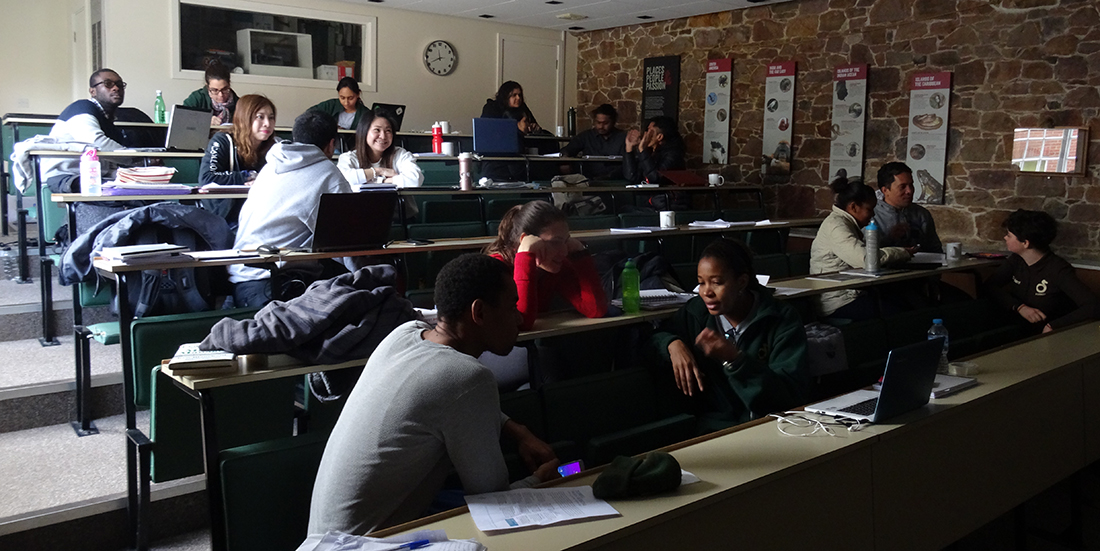 It was an honour and privilege to be invited to speak and lead a few days workshops for the DESMAN in Jersey once again; the third year I have done this. My education and communication ‘course’ was well received and I thoroughly enjoyed engaging with this year’s students who came from: Armenia, Brazil, Canada, China (Hong Kong), India, Nigeria, Samoa, St. Lucia, Seychelles, Sri Lanka, Sumatra, & UAE.
It was an honour and privilege to be invited to speak and lead a few days workshops for the DESMAN in Jersey once again; the third year I have done this. My education and communication ‘course’ was well received and I thoroughly enjoyed engaging with this year’s students who came from: Armenia, Brazil, Canada, China (Hong Kong), India, Nigeria, Samoa, St. Lucia, Seychelles, Sri Lanka, Sumatra, & UAE.
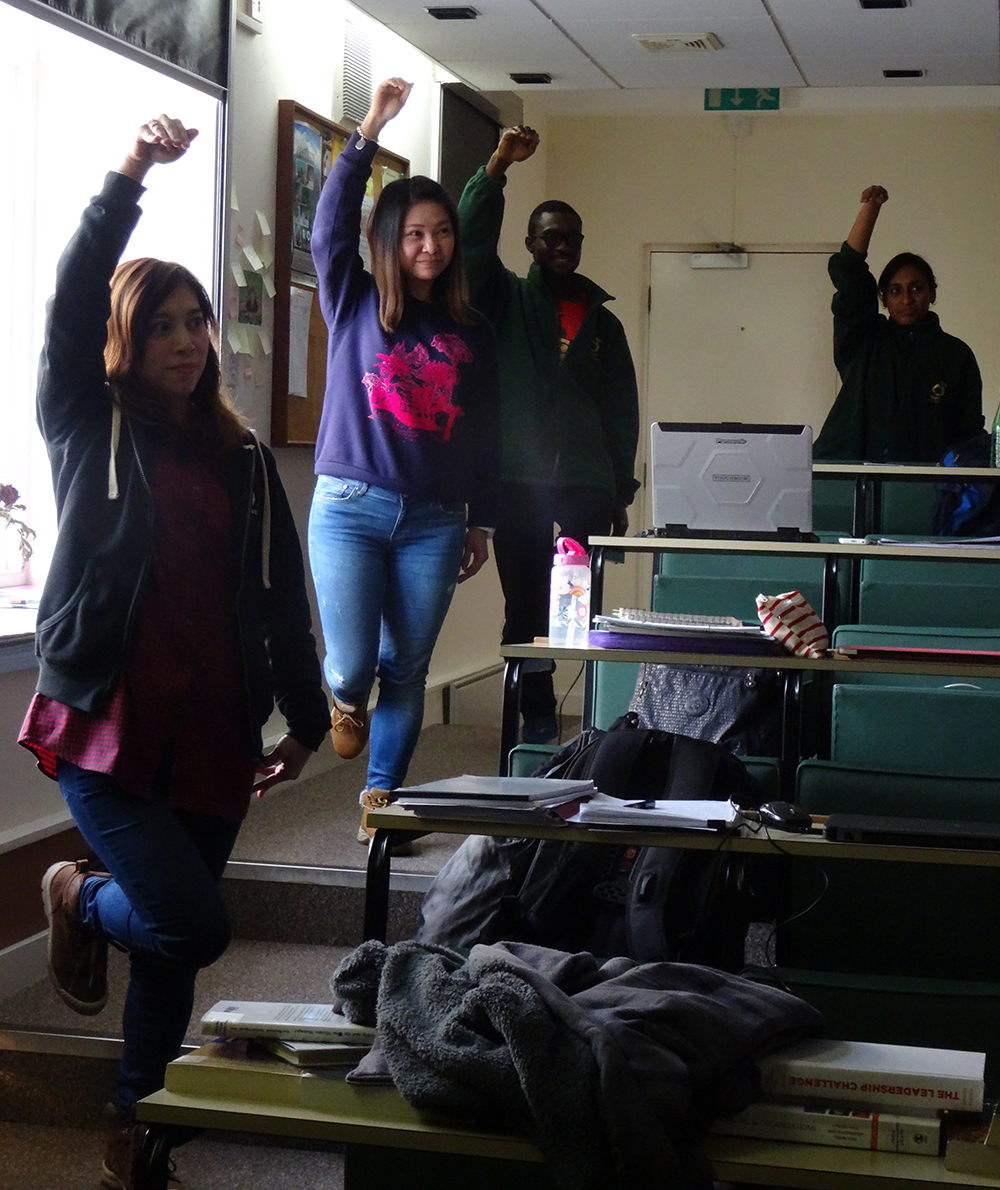
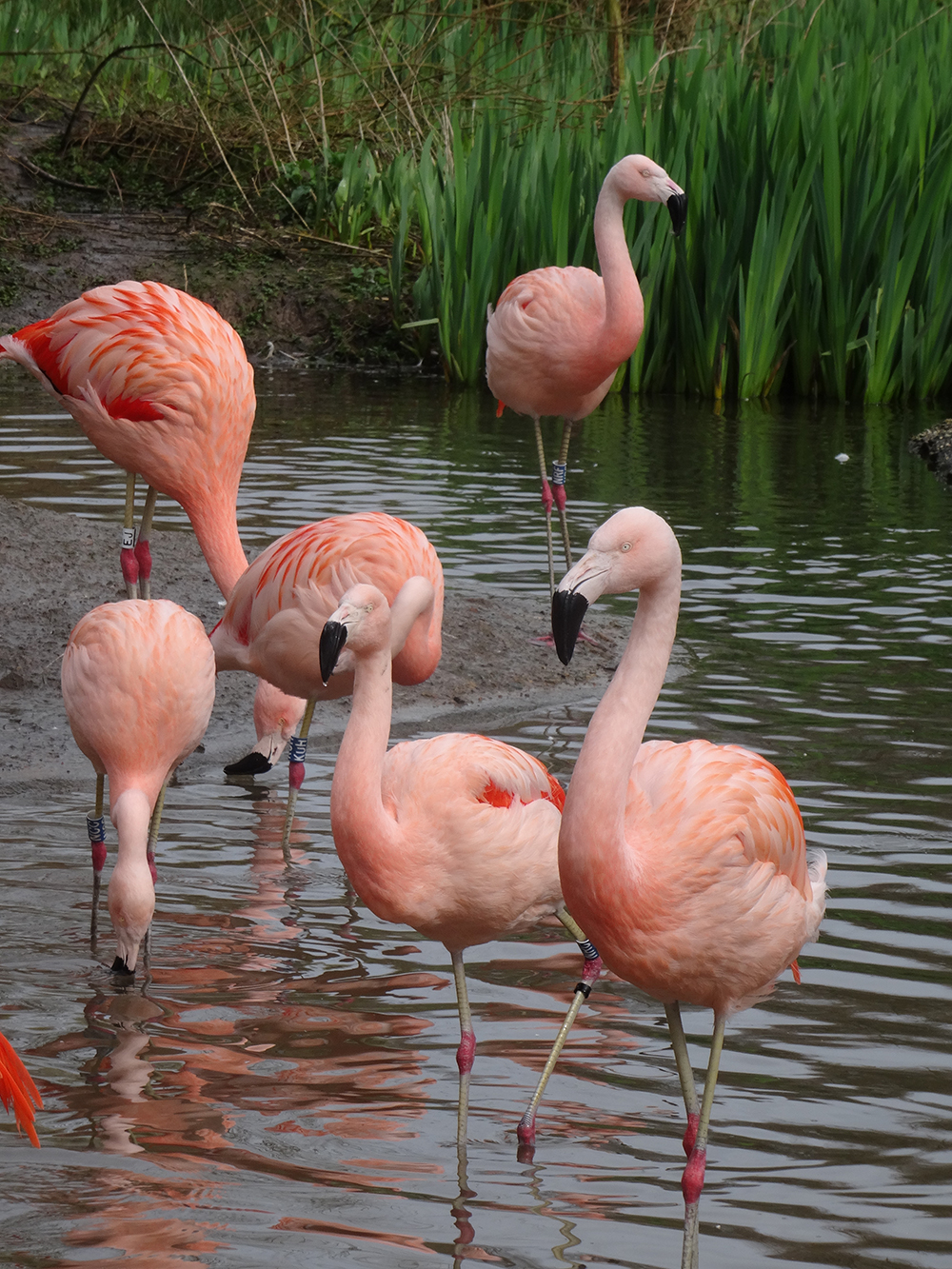
Whilst, I was able to inspire and enthuse the participants and demonstrate a diversity of communication and education techniques, I was also inspired and enthused by them too. It’s always good to meet people who are committed to, are doing and will do, great work and to be a small part of their development and conservation activity. Their feedback was also very much appreciated, with some great comments, such as:
“thank you for making it so fun, informative and inspiring”; “I got many new experiences about new techniques of education and awareness programmes – very useful”; and “inspired me to do more in the field of conservation education and community conservation”.
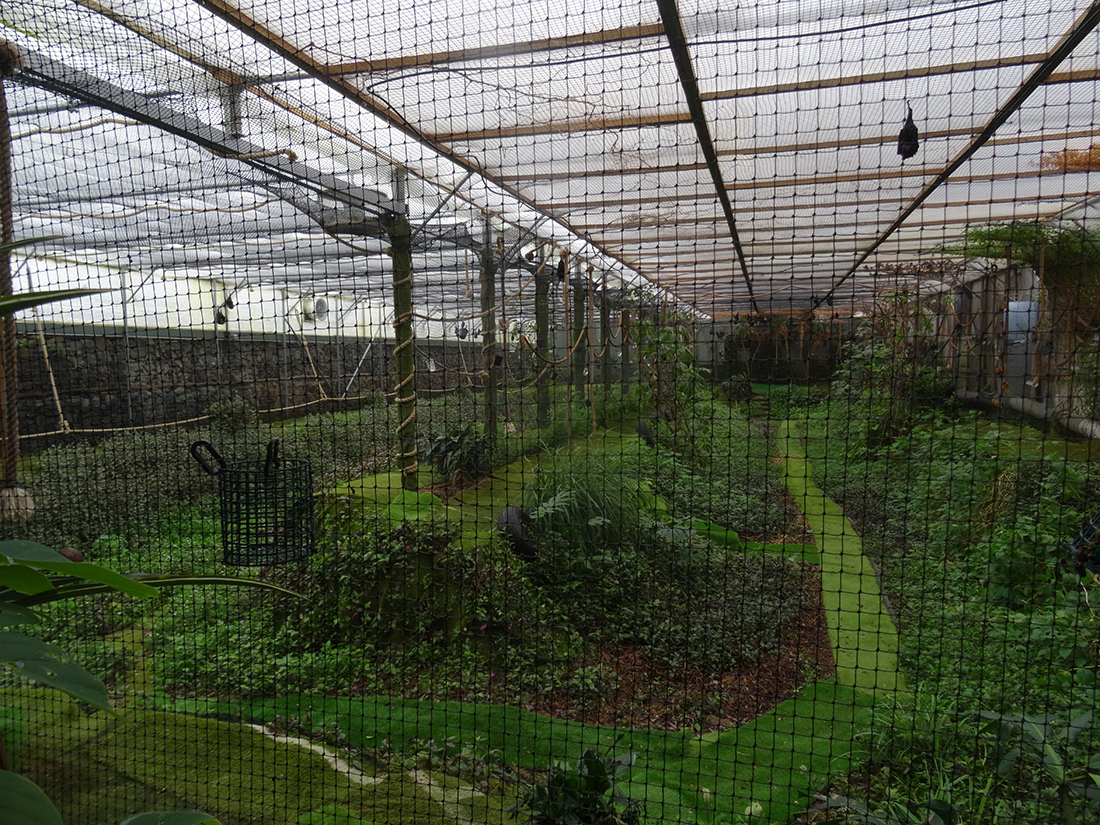 It was of course also great to return to Jersey Zoo, HQ of Durrell and enjoy time in the Zoo – not least the brilliant bat flight enclosure – which in itself has a great community and recycling story in its construction. We also enjoyed reviewing and critiquing the education for visitors, by observing talks, signs and discussing education programmes. One of the great aspects of the DESMAN is that the diversity of participants may have specific field projects and focus, but they get to understand endangered species management in general and the multi-faceted approach needed for conservation to succeed – including through education and communication.
It was of course also great to return to Jersey Zoo, HQ of Durrell and enjoy time in the Zoo – not least the brilliant bat flight enclosure – which in itself has a great community and recycling story in its construction. We also enjoyed reviewing and critiquing the education for visitors, by observing talks, signs and discussing education programmes. One of the great aspects of the DESMAN is that the diversity of participants may have specific field projects and focus, but they get to understand endangered species management in general and the multi-faceted approach needed for conservation to succeed – including through education and communication.
I am optimistic that this year’s DESMAN participants, along with previous students, WILL go MAD and Make A Difference!
Thanks to Durrell Conservation Academy and to the participants and staff. (Links on social media twitter: @ZooStephen and featured on @Durrell_Academy and on facebook.)
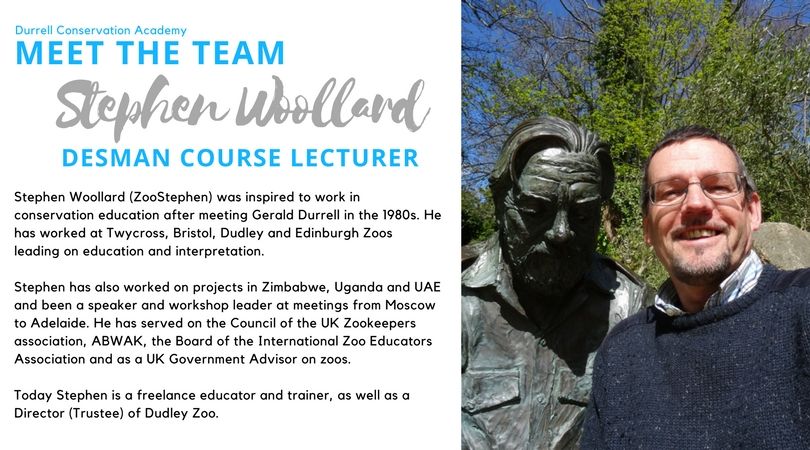

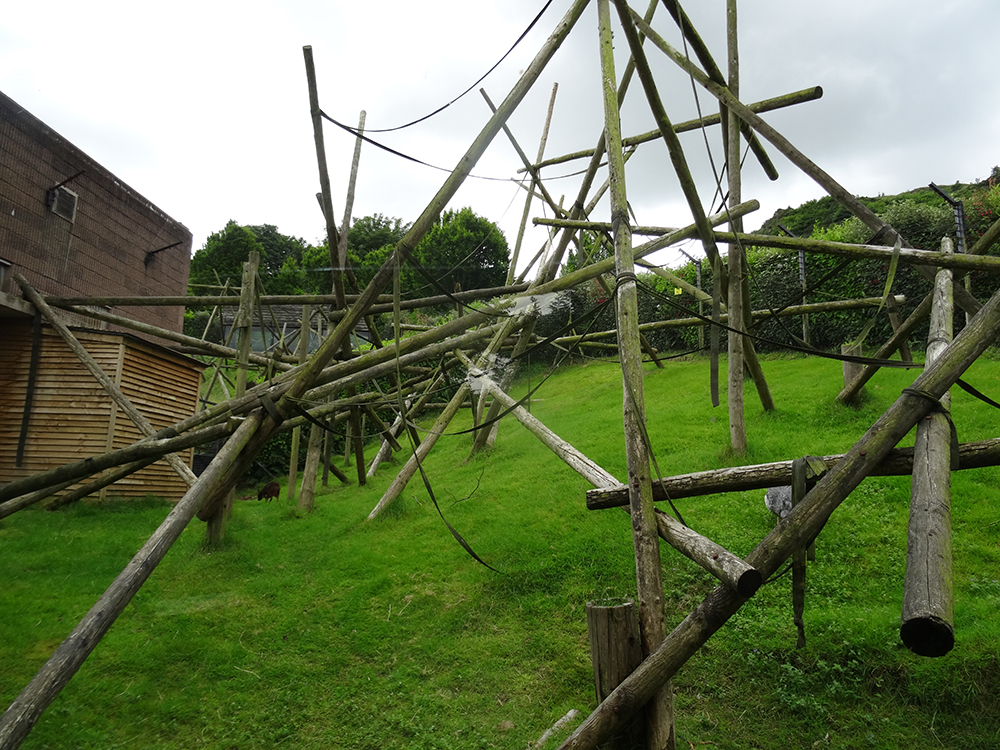
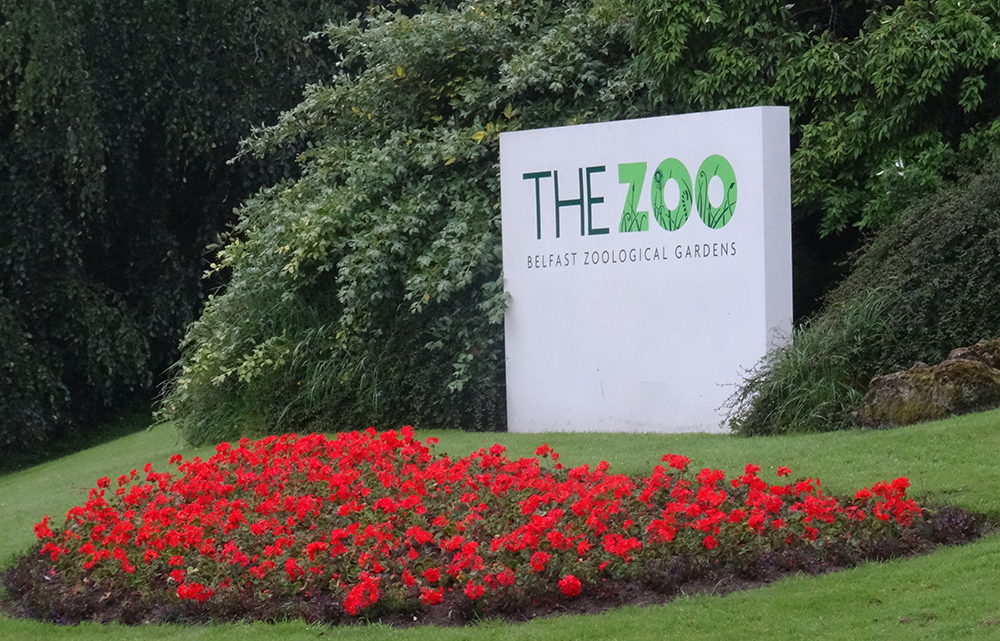
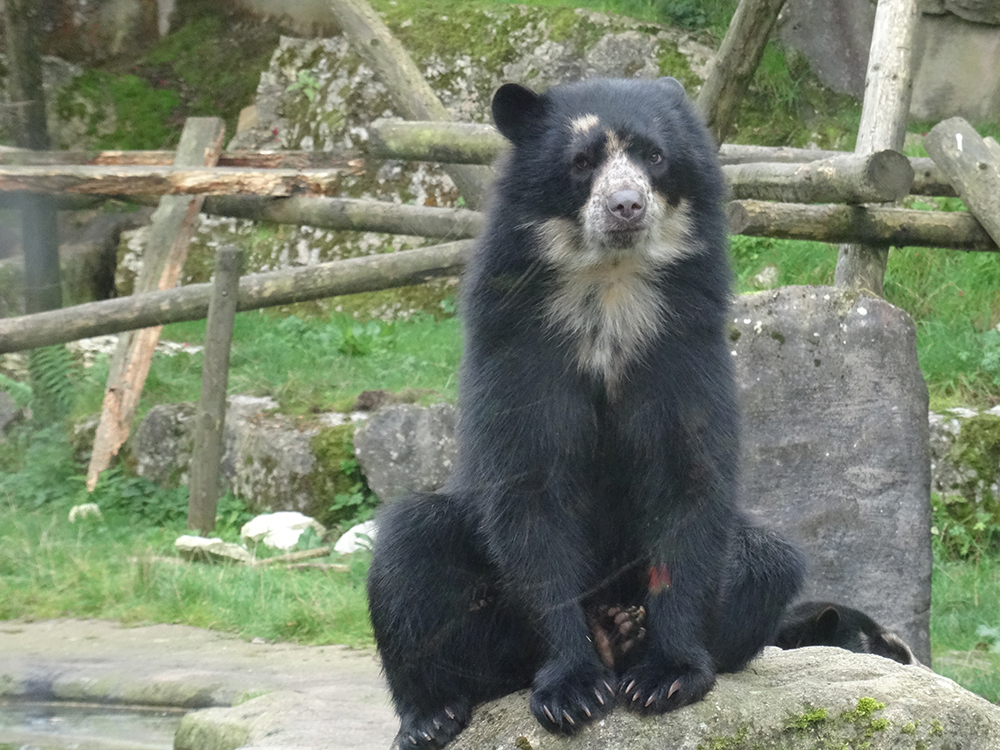
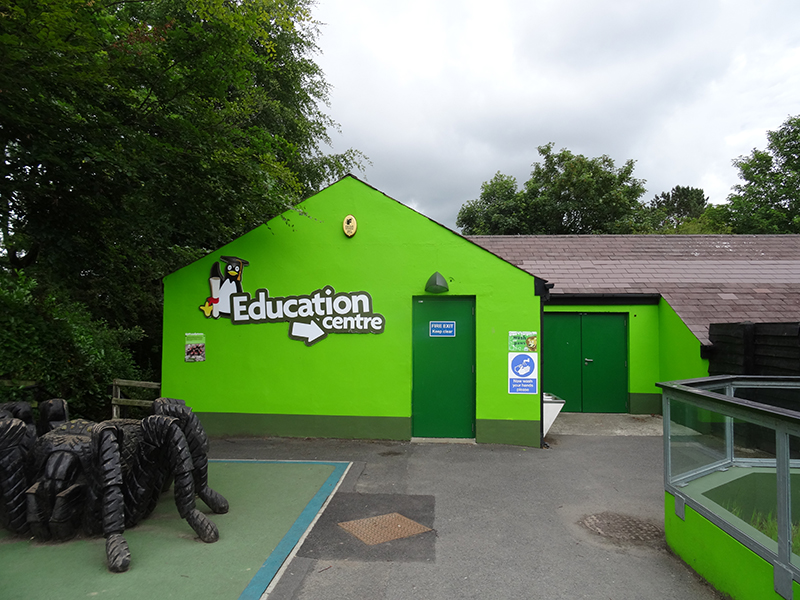
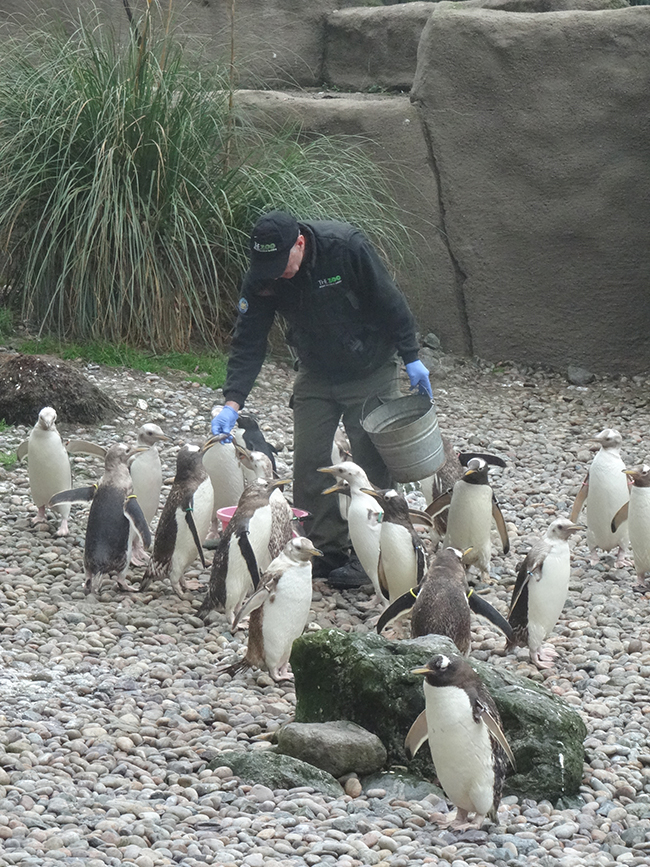
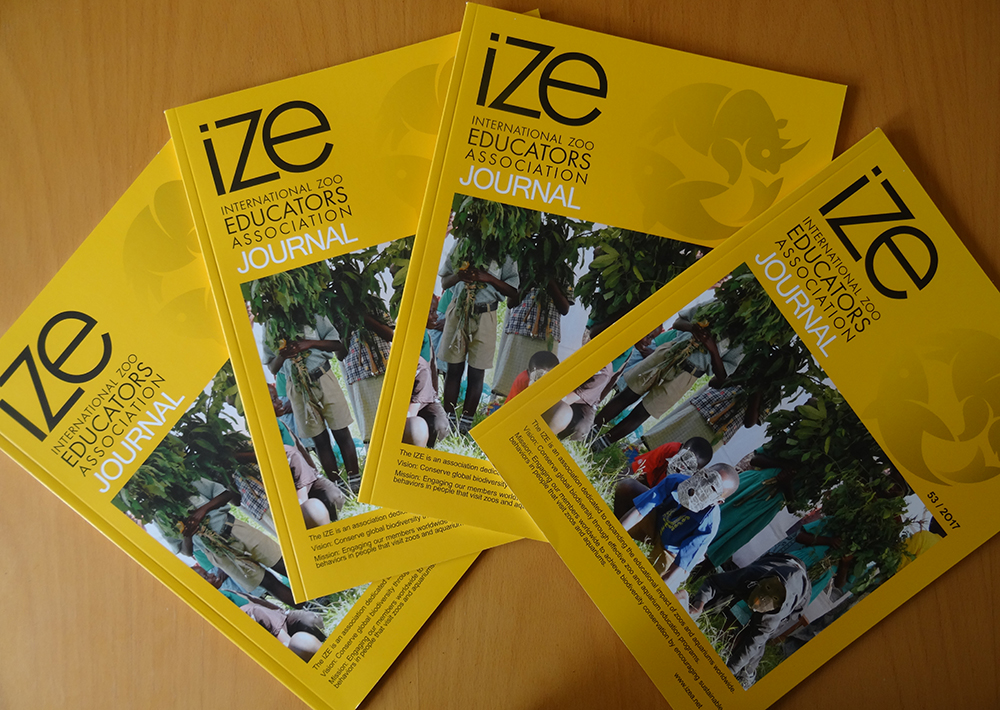 I was honoured to be chosen by IZE to be on the Executive Committee and to be the Journal Editor for the past 5 issues. The latest, my last, 2017 Journal has just been published and will be circulated to members during August. (Past issues are available on the website).
I was honoured to be chosen by IZE to be on the Executive Committee and to be the Journal Editor for the past 5 issues. The latest, my last, 2017 Journal has just been published and will be circulated to members during August. (Past issues are available on the website).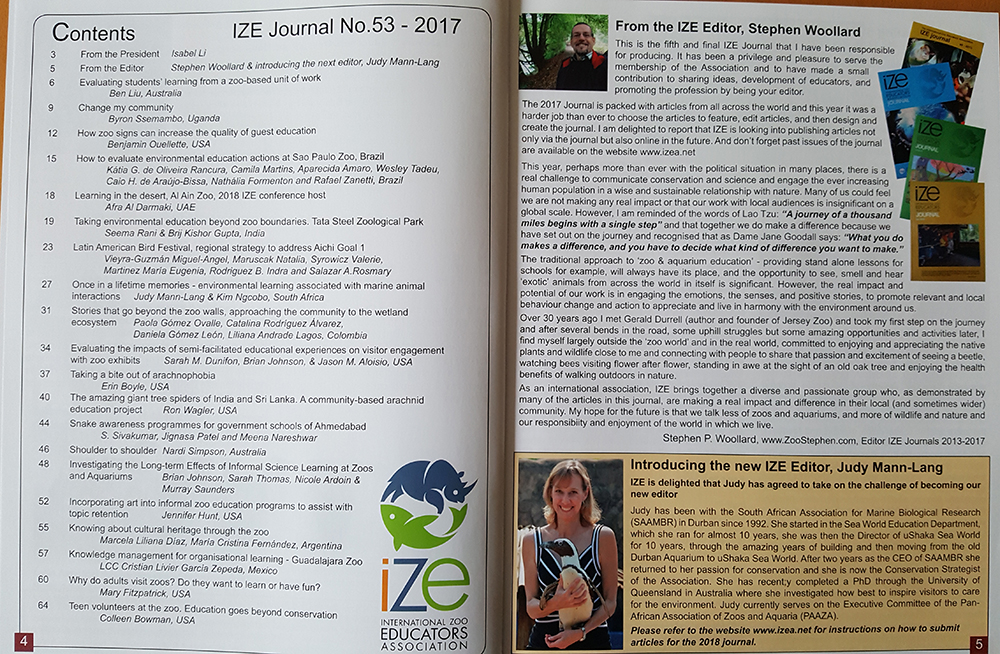
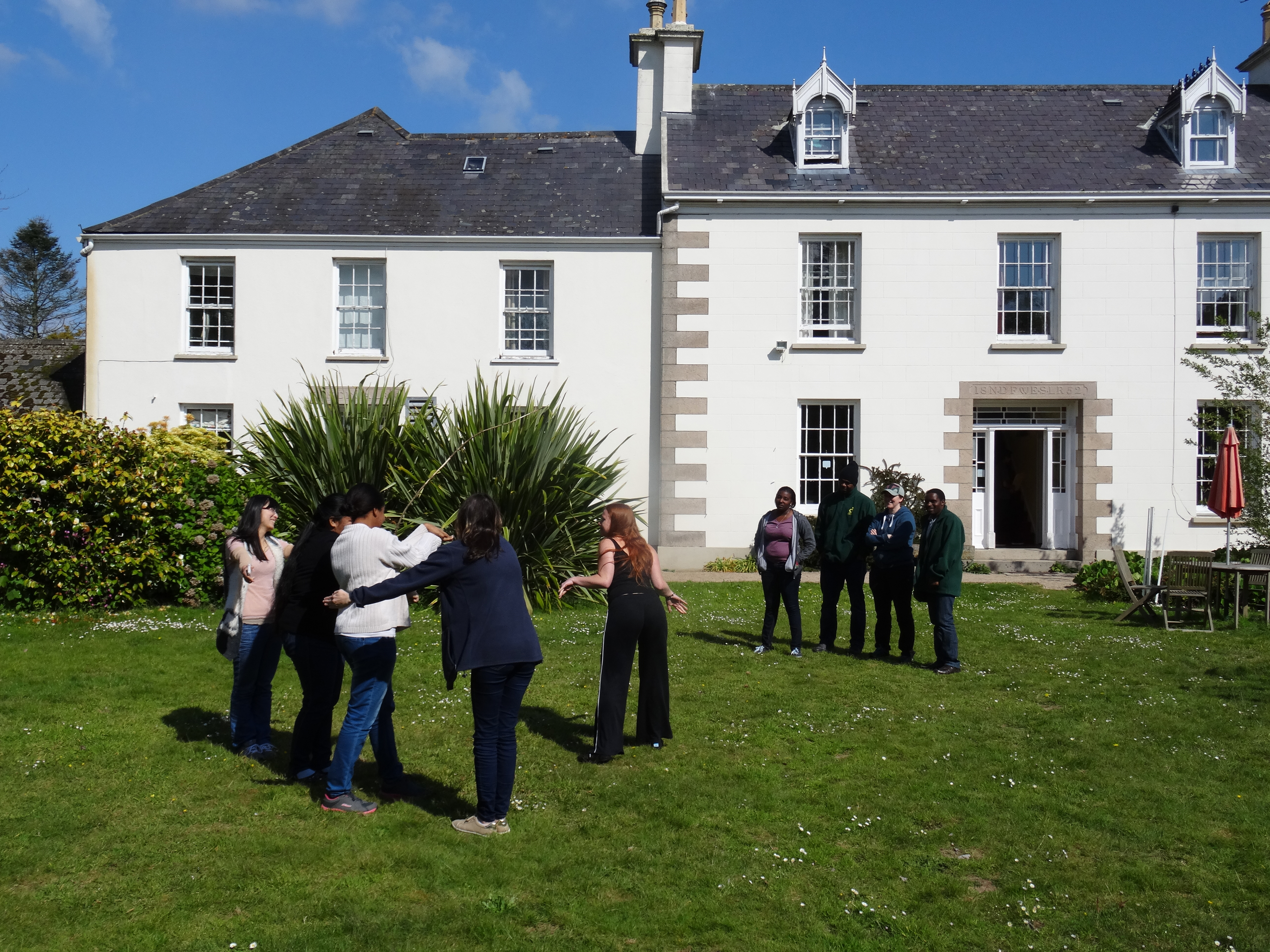
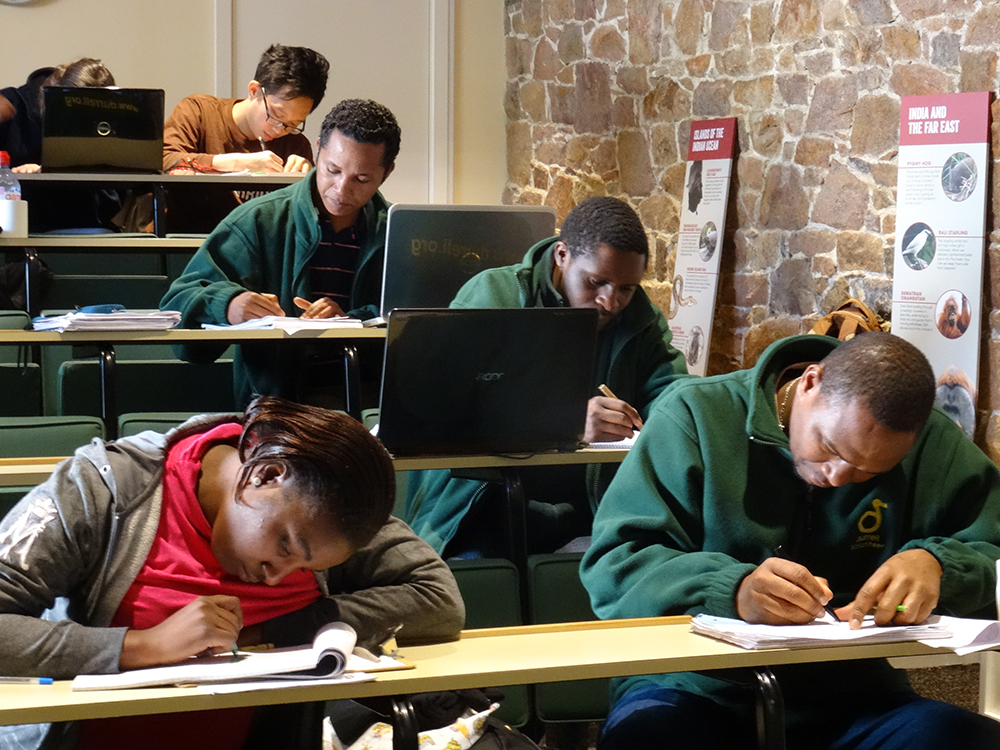 The Durrell Conservation Academy in Jersey has been involved in the training of hundreds of conservationists from around the world and its flagship programme is the Durrell Endangered Species Management Graduate Certificate – DESMAN. It was an honour to be asked to run the Conservation Education training aspect of this year’s course.
The Durrell Conservation Academy in Jersey has been involved in the training of hundreds of conservationists from around the world and its flagship programme is the Durrell Endangered Species Management Graduate Certificate – DESMAN. It was an honour to be asked to run the Conservation Education training aspect of this year’s course.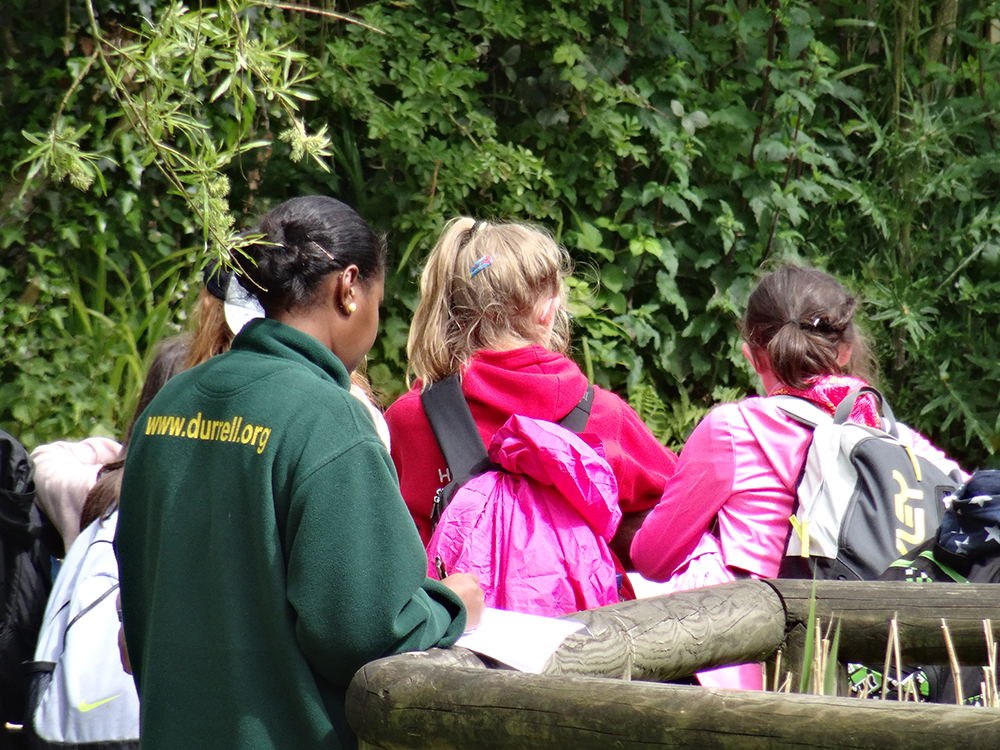
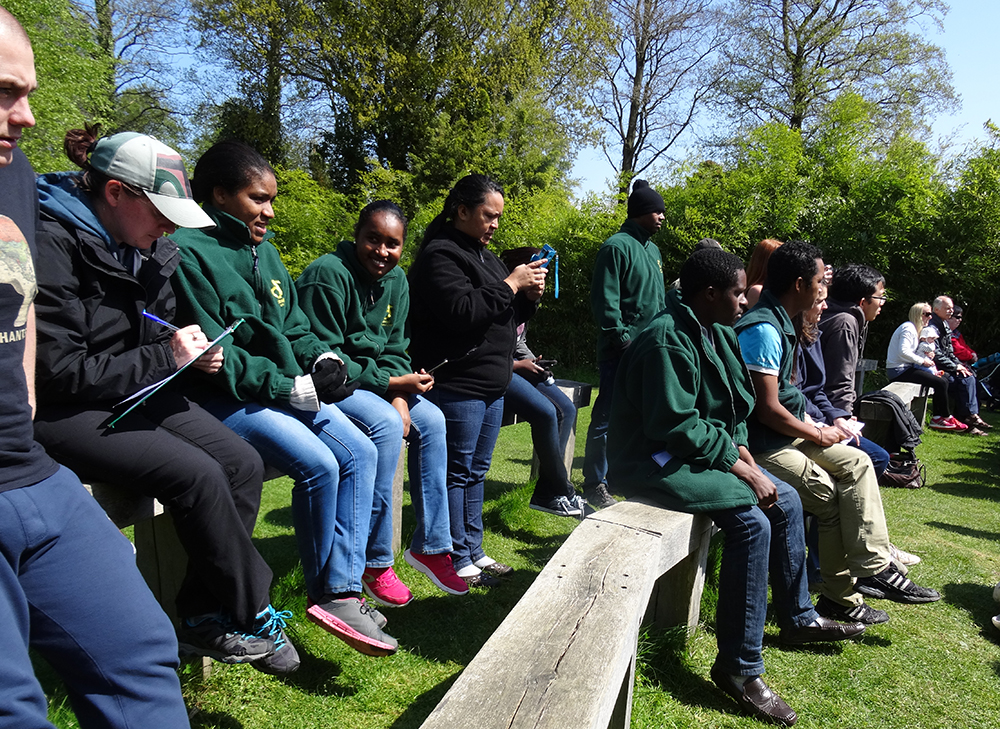
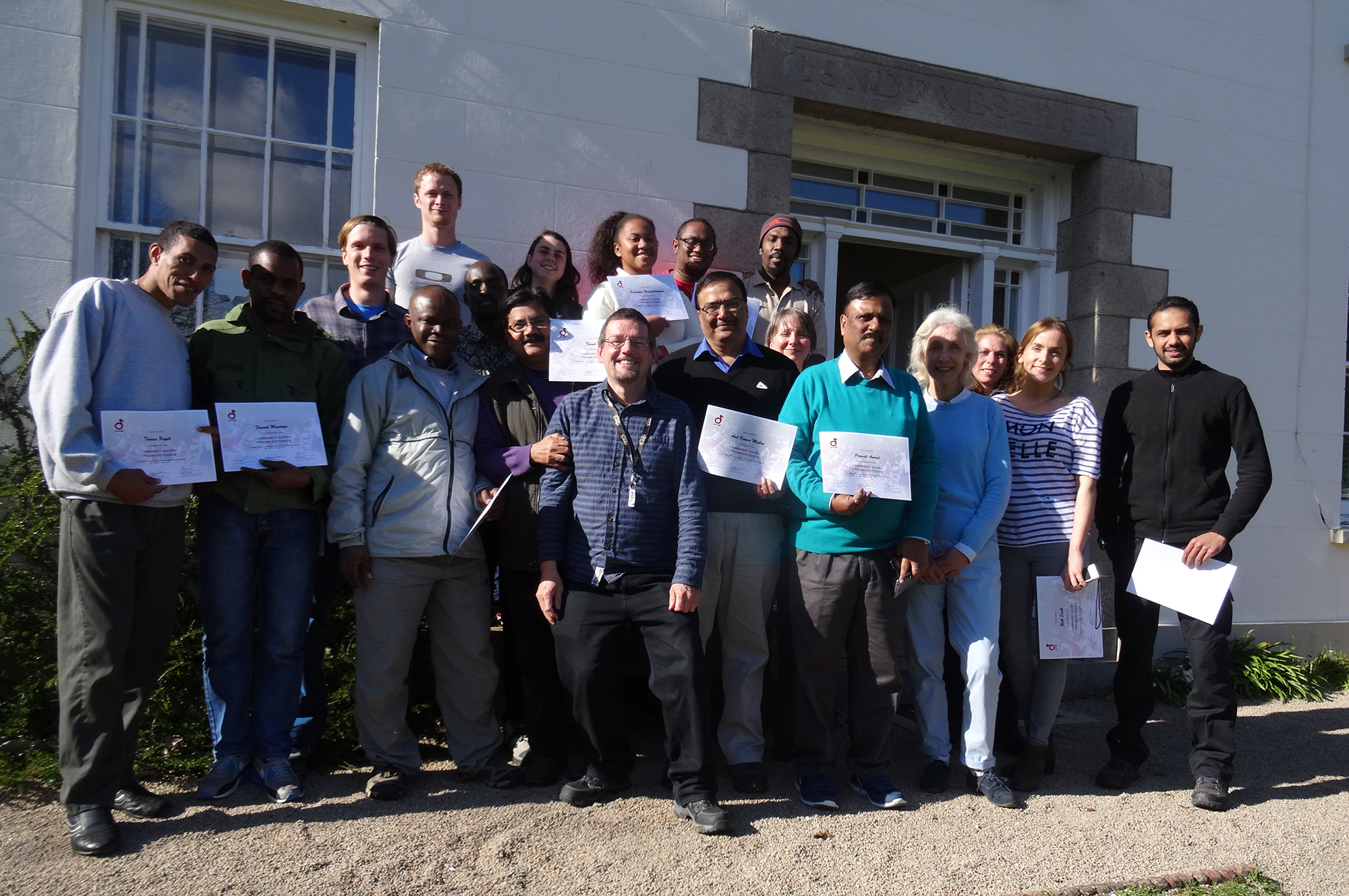
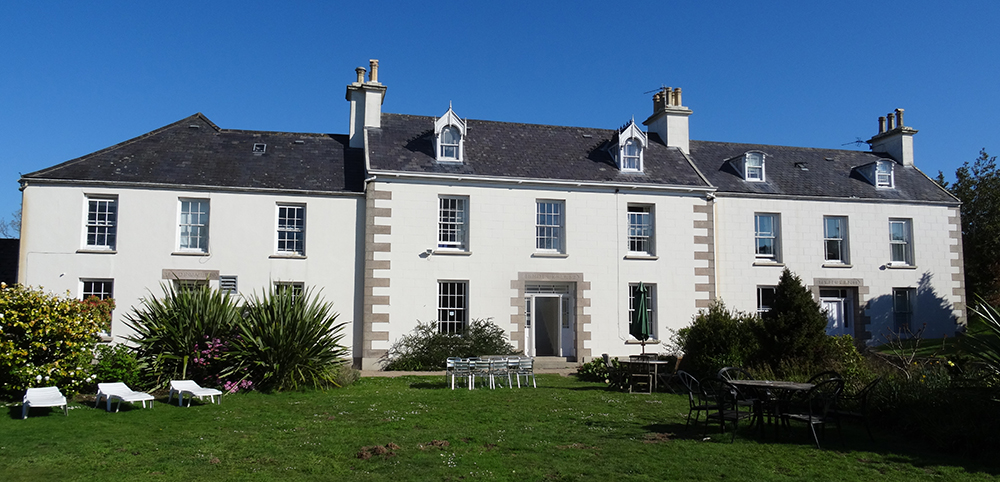
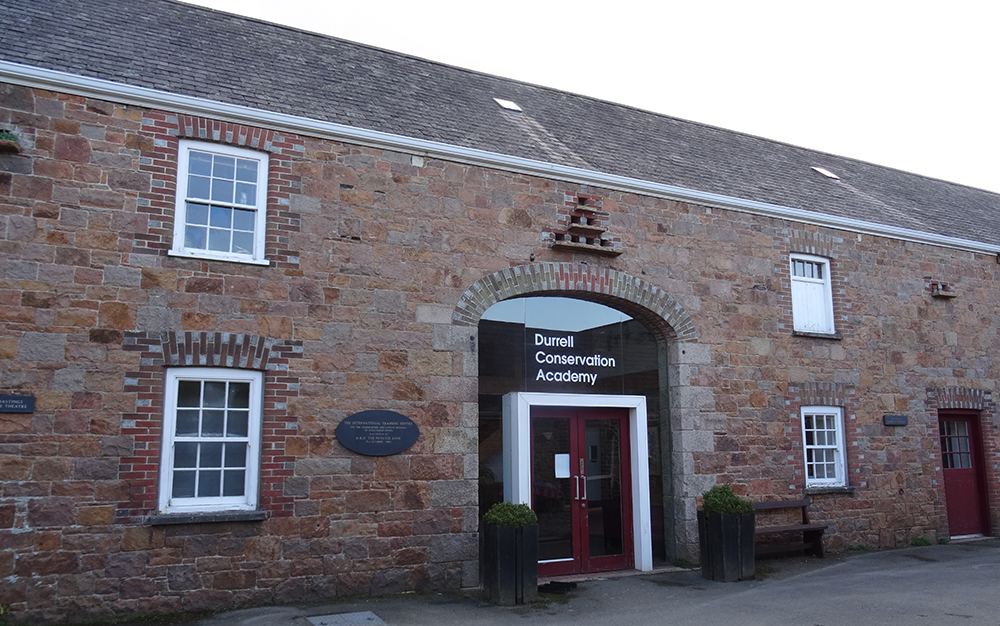 With the 12 week DESMAN – Durrell Endangered Species Management Graduate Certificate – the participants achieve academic recognition, validated by the University of Kent. The course has a high reputation and it is brilliant that scholarships are available.
With the 12 week DESMAN – Durrell Endangered Species Management Graduate Certificate – the participants achieve academic recognition, validated by the University of Kent. The course has a high reputation and it is brilliant that scholarships are available.